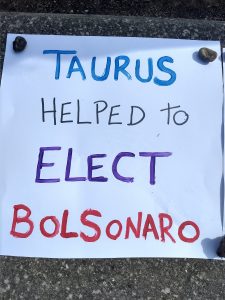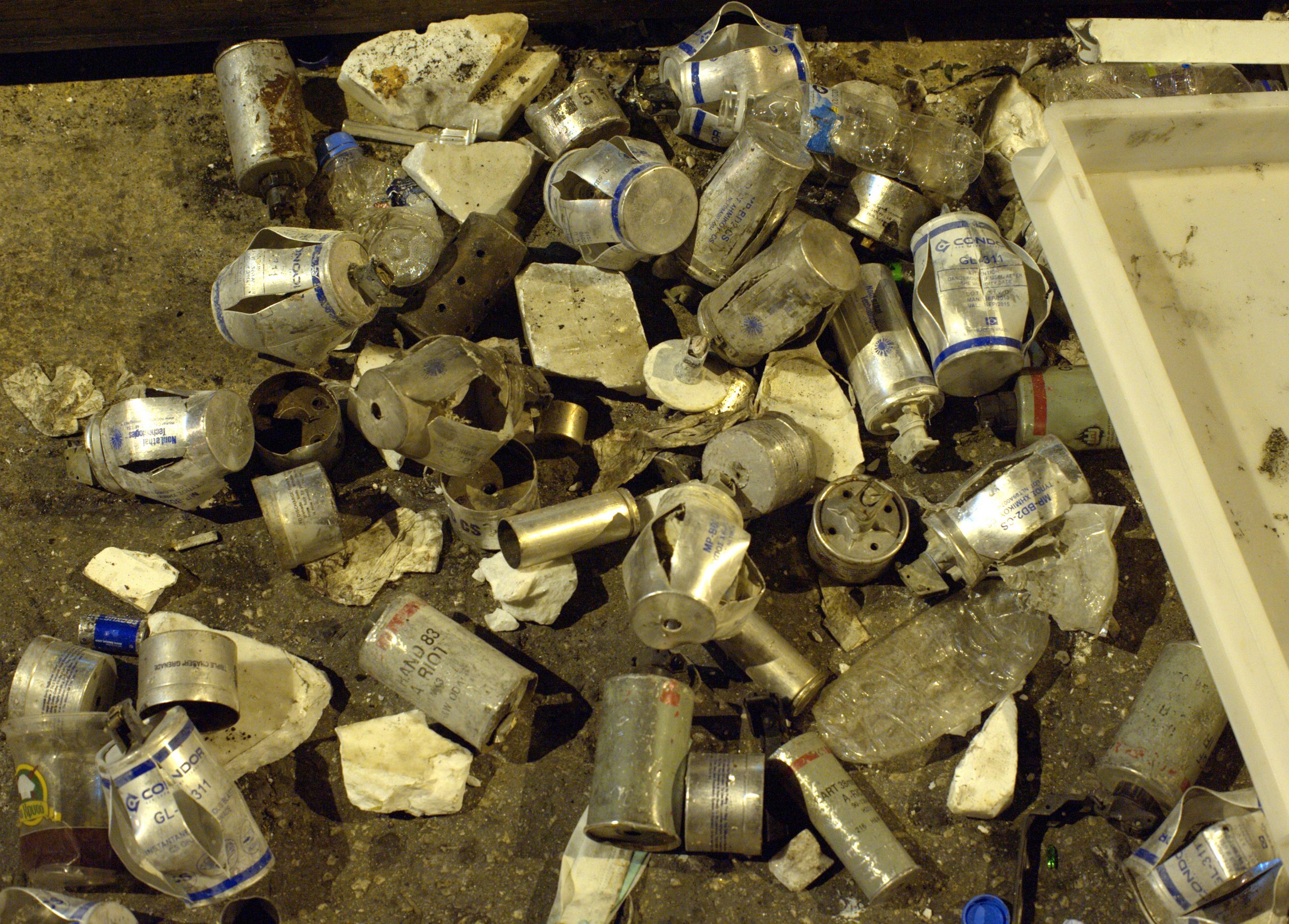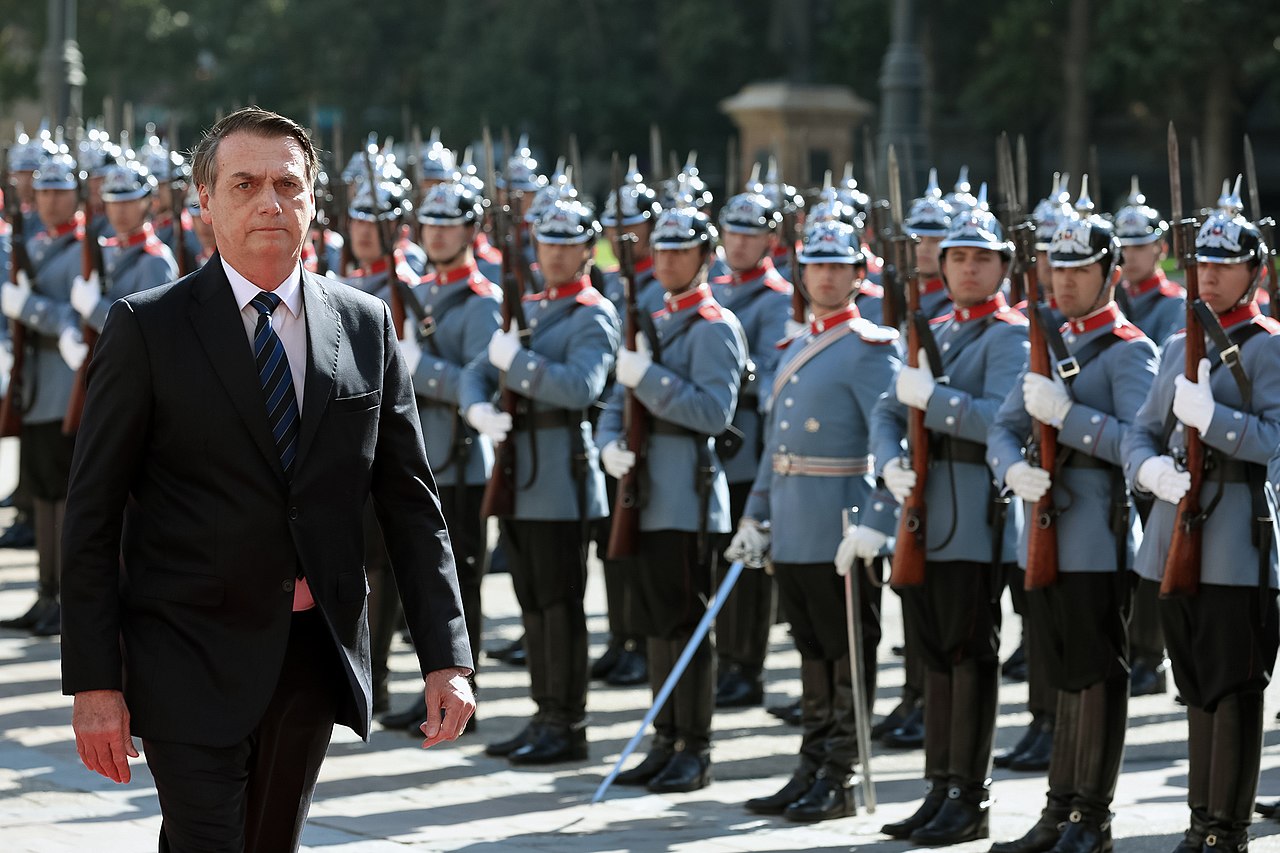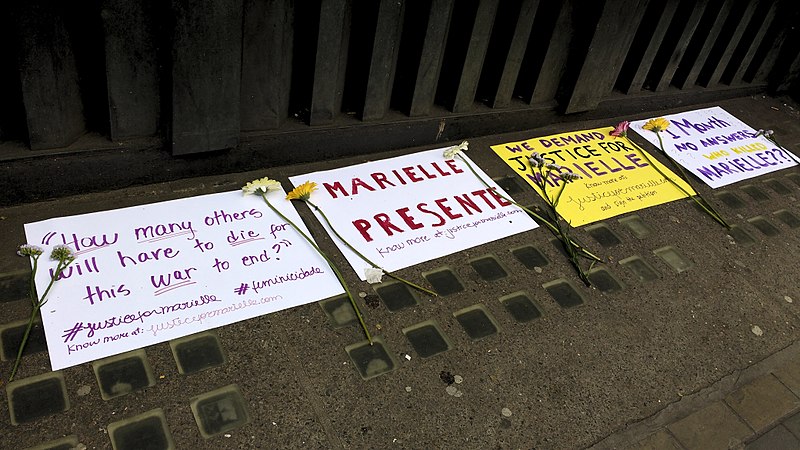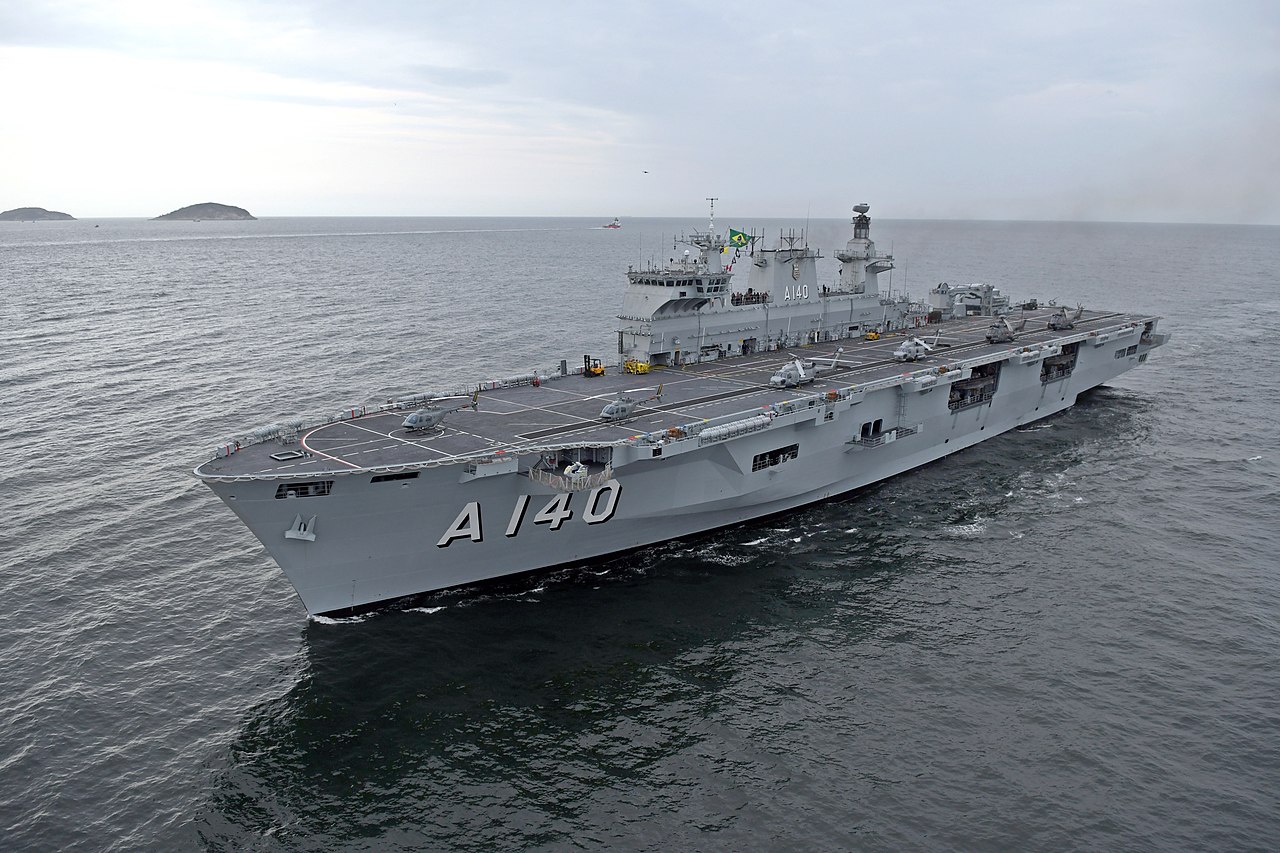Brazil has a significant arms industry of its own which regularly exhibits at the DSEI arms fair in London.
Overview
Major companies include aircraft producer Embraer, which mostly produces civil aircraft, but also the Super Tucano trainer/light attack aircraft, which has been sold to conflict-affected countries around the world; Condor non-lethal technologies, a major tear-gas producer; and Taurus, one of the largest producers of small arms in the world.
Brazil has a substantial domestic arms industry, which it is seeking to develop further with a goal of attaining a large degree of self-sufficiency in arms production.
It is using major arms imports, in particular the Gripen combat aircraft from Sweden and submarines (including a nuclear submarine) from France, to gain technology transfers, training, and local co-production, with the aim of being able to design and produce such systems independently in the future.
Brazil was the 24th biggest exporter of major conventional weapons between 2008-2017 according to SIPRI, selling to 21 countries, with no individual recipient predominating.
Brazil hosts a major biennial arms fair, LAAD Defence and Security, which claims to be “the leading defence and security exhibition in Latin America”. The arms fair is strongly supported by the Brazilian government and armed forces.
The most recent such event was LAAD Defense and Security 2019, which had 450 exhibitors and 183 official delegations, including one from the UK. BAE Systems was a diamond sponsor” for the event.
Major Brazilian arms companies
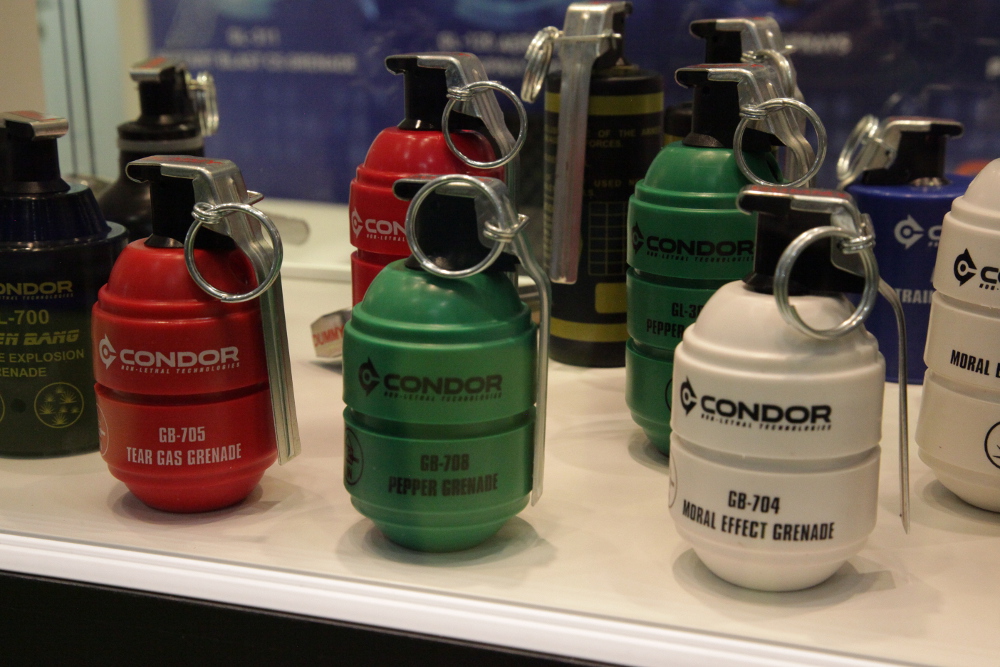
Photo c. Sharron Ward
Condor Non-Lethal Technologies
Condor Non-Lethal Technologies is a Rio-based company, specialising in tear gas, pepper spray, stun guns, rubber bullets, smoke grenades, impact grenades and pyrotechnics.
It sells to militaries, police forces, and the UN, and also offers training to public and private institutions around the world. The company was founded in 1985 and regularly exhibits at DSEI and other arms fairs, such as Milipol.
The company’s weapons have been used to aid repression and counter dissent all over the world.
Between 2008 and 2011, the Venezuelan government bought 150 tonnes of Condor’s tear gas. Its tear gas has also been used in Turkey, Bahrain, Greece, and Brazil itself.
Tear gas in Turkey
Tear gas made by Condor was used against protesters in Turkey in June 2013. The effects of tear gas were particularly harmful in the Turkish protests
A Physicians for Human Rights investigation reported that there were
“8,000 injuries due to tear gas, rubber bullets, water cannons, beatings, and live ammunition.”
It is believed that eleven people lost their eyes after being struck by tear gas canisters during the demonstrations, and one protester was possibly killed.
Tear gas in Bahrain
Condor has sold tear gas to Bahrain and other Gulf Cooperation Council (GCC) countries, and may well continue to do so. When protests against the Bahraini regime began in February 2011, the Bahraini authorities – assisted by Saudi Arabia and other GCC countries – engaged in massive repression against protesters.
Tear gas was used on an unprecedented scale, often at close range and even in people’s homes, causing severe injury and at least 34 deaths. Used Condor tear gas canisters were among those documented by human rights organizations. The death of a protester in a Bahraini village in 2015 was specifically linked to Condor tear gas, leading to a complaint by an NGO coalition against the company that year.
Condor claimed that the Bahraini authorities had not followed the instructions correctly. The company made similar claims when security forces in Egypt and Turkey appeared to be using their equipment in order to intentionally increase harm or even “systematically torture”.
Greece
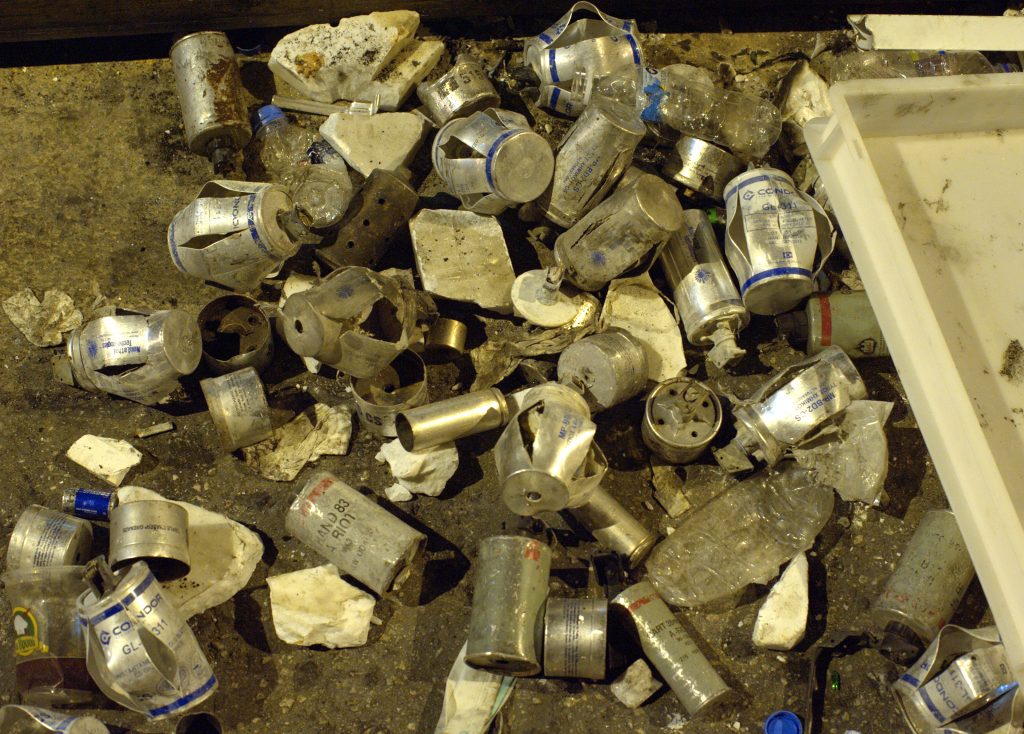
Condor’s tear gas has also been used in Greece, including during the 2011 anti-austerity protests, when an investigation was launched into the violent response of police and the use of tear gas against protesters.
Embraer
The third largest producer of commercial aircraft in the world after Boeing and Airbus, around 16% of Embraer’s sales are nonetheless from arms.
Embraer produces the Super Tucano trainer/light attack aircraft, which has been exported by Brazil to 15 countries worldwide between 2008-2017. It is particularly popular for counter-insurgency purposes, including in numerous ongoing conflict countries such as Afghanistan, Colombia, Mali, Nigeria, and Pakistan. The Super Tucano is also produced under license in the US, from where it is also exported. (The Nigerian planes were from the US production line, for example).
Embraer has also led development of a new military transport aircraft, the KC-390, along with other South American partners. Embraer was listed by SIPRI as the 84th largest arms company in the world outside China in 2017, with arms sales of $950 million.
Odebrecht
Odebrecht is a giant Brazilian infrastructure and construction company that has also developed interests in the arms industry. In particular, it won the contract for construction of a new submarine construction facility and naval base for the submarines bought from France in 2009.
Odebrecht has been heavily implicated in the massive Lava Jato corruption investigation in Brazil, for paying massive bribes to win contracts in all sectors of their business, including €45 million in bribes linked to the submarine contract.
Helibras
A Brazilian subsidiary of Airbus, producing military and civil helicopters; its military helicopters are mostly used by the Brazilian armed forces.
Taurus
Taurus claims to be one of the three largest small arms manufacturers in the world.
According to its website: “The company produces a wide range of models of weapons and accessories, including holsters, revolvers, pistols, machine guns and long guns used for the markets of the military and police as well as to the civil market.”
It exports to around 80 countries worldwide, with a particular focus on the US market, where it also has a subsidiary.
In 2020 it entered into a joint venture with the Jindal Group to produce guns in India, following a visit by Bolsonaro and a trade delegation.
In 2016, two Taurus executives were charged with selling handguns to a Yemeni arms dealer in Djibouti, which were subsequently sold to armed groups in Yemen’s civil war.
The company’s share price increased fivefold in a month and a half as expectations grew of a victory for the avidly pro-gun Bolsonaro before October 2018. Although it subsequently fell back, in July 2020 it remained at almost double its value at the beginning of September 2018.
